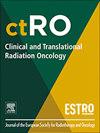儿童放射肿瘤学预处理教育的大型语言模型:一项比较评价研究。
IF 2.7
3区 医学
Q3 ONCOLOGY
引用次数: 0
摘要
背景和目的:儿童放射治疗患者及其父母通常在早期就意识到他们需要放射治疗,但他们在治疗后期会见放射肿瘤学家。因此,他们在网上搜索信息,经常遇到不可靠的来源。大型语言模型(llm)有潜力作为教育预处理工具,为他们的问题提供可靠的答案。我们的目的是评估生成式预训练转换器(GPT),法学硕士中最流行的亚组,对儿童放射肿瘤学问题的反应。材料与方法:收集患者及家长关于放疗前的问题。使用GPT-3.5、GPT-4和微调后的GPT-3.5进行反馈,并根据各机构的儿科放疗指南进行微调。此外,一位放射肿瘤学家为这些问题准备了答案。最后,一个由9名儿科放疗专家组成的多机构小组对反应进行了盲评,评估可靠性、简便性和可理解性。结果:放射肿瘤学家和GPT-4提供了最高质量的回答,尽管GPT-4的答案往往过于冗长。虽然经过微调的GPT-3.5总体上优于基本的GPT-3.5,但它提供的答案往往过于简单。不充分的反应很少见,在所有模型中,gpt生成的反应中有4%发生不充分的反应,主要是由于GPT-3.5生成的反应过长。结论:LLMs可作为儿童放射肿瘤学治疗前教育患者及其家属的宝贵工具。其中,只有GPT-4提供的信息质量与放射肿瘤学家的信息质量相当,尽管它偶尔也会产生低质量的反应。GPT-3.5模型应该谨慎使用,因为它们更有可能对患者的问题给出不充分的答案。本文章由计算机程序翻译,如有差异,请以英文原文为准。
Large language models for pretreatment education in pediatric radiation oncology: A comparative evaluation study
Background and purpose
Pediatric radiotherapy patients and their parents are usually aware of their need for radiotherapy early on, but they meet with a radiation oncologist later in their treatment. Consequently, they search for information online, often encountering unreliable sources. Large language models (LLMs) have the potential to serve as an educational pretreatment tool, providing reliable answers to their questions. We aimed to evaluate the responses provided by generative pre-trained transformers (GPT), the most popular subgroup of LLMs, to questions about pediatric radiation oncology.
Materials and methods
We collected pretreatment questions regarding radiotherapy from patients and parents. Responses were generated using GPT-3.5, GPT-4, and fine-tuned GPT-3.5, with fine-tuning based on pediatric radiotherapy guides from various institutions. Additionally, a radiation oncologist prepared answers to these questions. Finally, a multi-institutional group of nine pediatric radiotherapy experts conducted a blind review of responses, assessing reliability, concision, and comprehensibility.
Results
The radiation oncologist and GPT-4 provided the highest-quality responses, though GPT-4′s answers were often excessively verbose. While fine-tuned GPT-3.5 generally outperformed basic GPT-3.5, it often provided overly simplistic answers. Inadequate responses were rare, occurring in 4% of GPT-generated responses across all models, primarily due to GPT-3.5 generating excessively long responses.
Conclusions
LLMs can be valuable tools for educating patients and their families before treatment in pediatric radiation oncology. Among them, only GPT-4 provides information of a quality comparable to that of a radiation oncologist, although it still occasionally generates poor-quality responses. GPT-3.5 models should be used cautiously, as they are more likely to produce inadequate answers to patient questions.
求助全文
通过发布文献求助,成功后即可免费获取论文全文。
去求助
来源期刊

Clinical and Translational Radiation Oncology
Medicine-Radiology, Nuclear Medicine and Imaging
CiteScore
5.30
自引率
3.20%
发文量
114
审稿时长
40 days
 求助内容:
求助内容: 应助结果提醒方式:
应助结果提醒方式:


